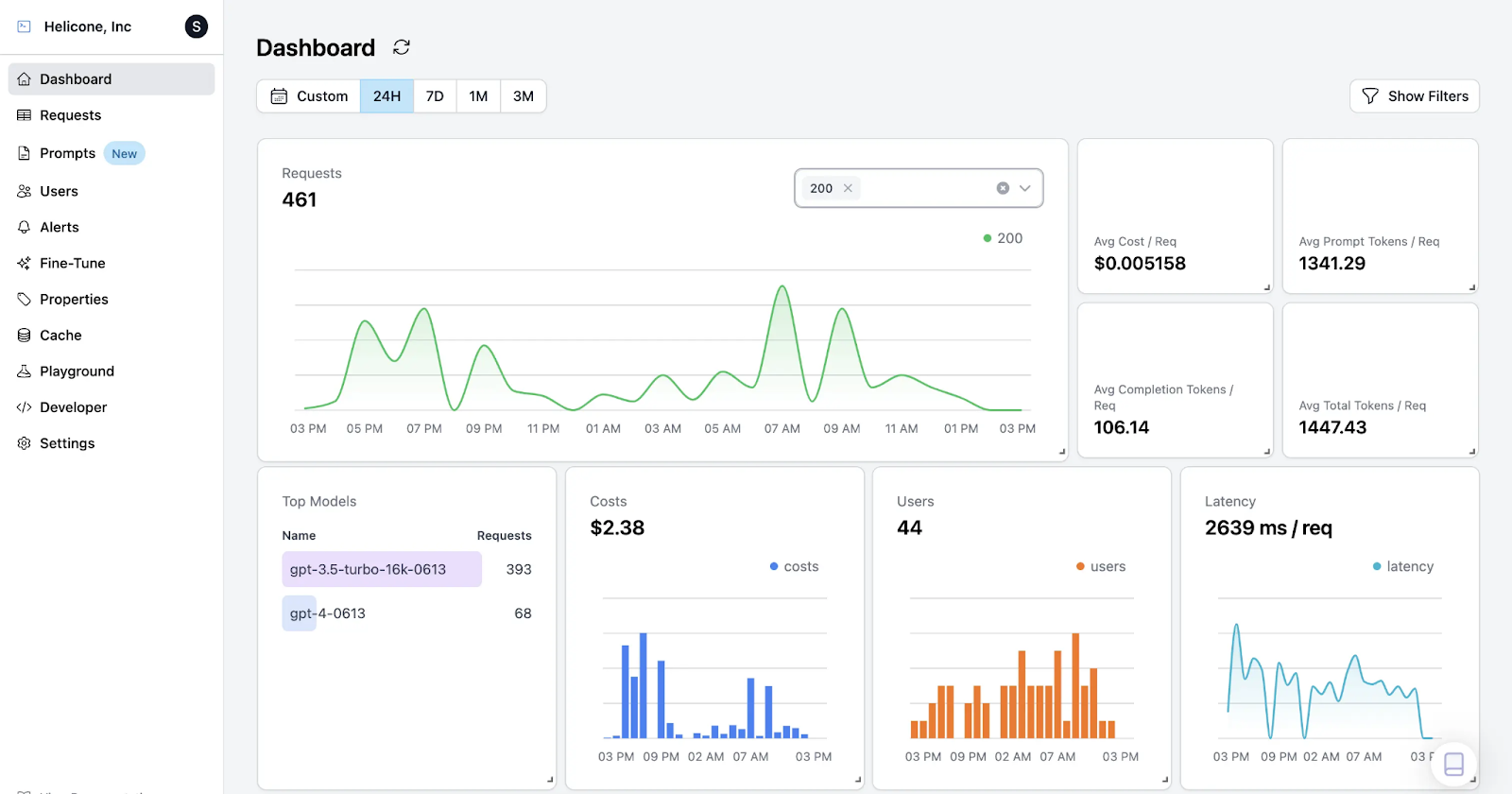Prompt Store
What is a Prompt Store?
Large language models (LLMs) have emerged as powerful tools for generating creative text, answering complex questions, and completing various tasks. However, the potential of LLMs and the quality of the responses LLMs generate are highly associated with the prompts users provide. This is where prompt stores come into play. It is a log of prompts and responses from LLMs, acting as a bridge between human intention and LLM capabilities.
In the context of LLMs, a prompt store is a system for logging and managing the interactions between users and LLMs. It essentially functions as a historical record by documenting:
- Prompts or inputs that are provided by users that trigger the LLM. This could be a text prompt for generating a specific type of text such as a poem or code, a question seeking an informative answer, or an instruction outlining a desired task.
- Responses or the outputs/responses that are generated by the LLM according to the prompts. This encompasses a wide range, including various text formats, explanatory answers to questions, or the results of completing a specific task as instructed.
Example of a prompt provided by user and the corresponding response by ChatGPT
An example of a prompt store is Helicone. It provides functionalities to keep tracking the prompts used when operating LLMs.

Example dashboard of Helicone
What can a Prompt Store do?
Prompt stores serve more than just a historical purpose. They act as valuable resources, for example, for developers to better integrate LLMs into their applications or debug potential issues, for researchers to push the boundaries of the capabilities of LLMs and study user behaviors, and ultimately, for users themselves to have a better experience in interacting with LLMs. Here's a closer look at the diverse applications of prompt stores:
-
Fueling LLM improvement: By analyzing past interactions between users and LLMs, developers and researchers can gain insights into the LLM's strengths and weaknesses. Patterns in prompts and corresponding responses reveal areas where the LLM struggles. Armed with this knowledge, developers and researchers can refine training data and algorithms to enhance the LLM's accuracy and effectiveness in specific tasks.
-
Personalization powerhouse: Imagine an LLM that tailors its responses to a user’s unique needs. Prompt stores can pave the way for personalization. If an application is user-specific, such as AI chatbots and personalized learning platforms, it can analyze past interactions to understand user preferences and communication styles. This empowers LLMs to adjust future responses, making them more relevant and helpful to specific users.
-
Debugging and auditing for responsible use: Prompt stores serve as crucial tools for ensuring the LLM operates fairly and reliably. By revisiting past interactions, developers can identify potential biases in the LLM's responses. This allows them to address these biases and promote responsible use of the LLM technology.
-
Unlocking user insights: Imagine being able to analyze how users interact with your LLM application. Prompt stores provide valuable user behavior data for researchers to study. Additionally, by analyzing the types of prompts users submit most frequently and how users respond to the outputs of LLMs in a conversation, developers can gain insights into user needs and preferences. This knowledge can be used to refine their LLM applications and improve user experience.
Exploring Different Prompt Store Types
While the core functionality of logging interactions remains the same, prompt stores can take different forms.
Centralized Repositories
In this case, the prompt stores are typically used by organizations or development teams working with LLMs for various projects. There is a central location to store prompts used for different applications or projects, enabling version control and collaboration.
Centralized repositories can be structured to be versioned and categorize prompts based on specific tasks or projects. A centralized repository makes it easy for team members to share prompts and collaborate across projects. This allows for easy retrieval and efficient use of prompts within their intended context. With version control, it ensures developers can always find the most up-to-date version and prevents confusion or errors caused by outdated prompts.
User-Specific Logs
Prompt stores can also be designed as individual user-centric repositories that track interactions between specific users with a specific LLM application. These personalized logs can be leveraged to personalize future interactions and enhance user experience.
While personalization is valuable, user privacy is paramount. User-specific logs should be designed with robust privacy controls. Users should have the option to opt out of data collection or request their data to be deleted. Additionally, anonymization techniques can be employed to ensure user identities remain protected while the LLM application benefits from the anonymized data for personalization.
The Future of Prompt Stores
Prompt stores are evolving beyond simple logs. As the field of LLM development advances, we can expect to see prompt stores becoming a collaborative ecosystem.
-
Community-Driven Stores: Imagine a platform where users can share successful prompts and best practices. This collaborative approach could empower users to leverage the collective intelligence of the community and unlock the full potential of LLMs.
-
Standardized Formats: With the rise of different LLM architectures, a need for standardized prompt formats might emerge. This would ensure greater compatibility and ease of use across various LLM platforms.
Summary
In conclusion, prompt stores play a significant role in enhancing the capabilities of LLMs when interacting with users. By recording interactions between users and LLMs, they provide valuable data for developers and researchers to finally serve the users themselves. As LLMs continue to evolve and integrate into applications, prompt stores will play an even more crucial role. Furthermore, we will also keep in mind that user-specific logs should be protected with appropriate security measures like encryption to prevent unauthorized access and ensure data integrity.